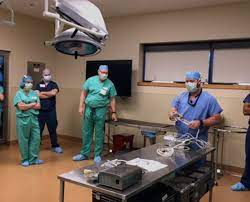The Rise of At-Home Genetic Testing
At-home genetic testing has seen massive growth in popularity over the past decade. Thanks to companies like 23andMe, AncestryDNA and FamilyTreeDNA, customers can now order DNA test kits online and complete them in the comfort of their own home. Swabbing the inside of one’s cheek and mailing the sample back allows users to discover fascinating details about their genetic ancestry and potential long-lost relatives. Millions have taken these tests to learn more about where their ancestors came from and who they may be connected to.
The simplicity and accessibility of direct-to-consumer genetic testing have been key drivers of its rise. Customers appreciate being able to take a test in the privacy of their own home on their schedule, without visiting a doctor’s office or lab. The rise of streaming media and fascination with genealogy shows have also fueled more interest in exploring one’s heritage through DNA. As the companies have grown, they’ve been able to lower prices making tests affordable for many budgets.
What the Tests Can Reveal
Direct-to-consumer genetic tests analyze a person’s DNA Test Kits to provide different types of insights. Ancestry composition reports break down the percentages of a customer’s ancestry across various global populations and geographical regions. This can unveil new details about a person’s genetic ties to places like Scandinavia, Sub-Saharan Africa or the Iberian Peninsula.
Relative matching allows users to discover potential cousins, aunts, uncles or other relatives who have also taken a DNA test with the same company. If close genetic matches are found, it gives clues to confirms family branches and opens possibilities for reconnecting with long-lost family members. Some third cousins or closer may be identified this way who share portions of DNA with the customer.
Health and wellness reports analyze certain genes associated with common traits like curliness of hair or ability to taste bitterness. Tests from companies like 23andMe also provide information on carrier status for hundreds of genetic conditions to help users understand their risks of passing traits to future children. However, these health results do not substitute for clinical genetic testing ordered by a medical professional.
Continuing to Build the DNA Database
As more individuals complete direct-to-consumer DNA tests, the databases of customer DNA profiles maintained by the testing companies continue expanding dramatically. Ancestry DNA, the largest tester, now has over 18 million customer profiles according to company statistics. This represents an invaluable resource for connecting with new potential relatives and enhancing the accuracy of ancestry percentages reported to users.
The bigger the databases grow, the better matches can be made between third, fourth and more distant cousins. It also allows refining of how ancestry compositions are determined as more population samples are included for comparison. Some scientists are even tapping into these vast consumer genetic repositories to study genetic traits of populations for medical research purposes. Customers consent to have their anonymous DNA included in research through terms of service agreements.
Genetic Privacy and Security Considerations
As with any collection of sensitive personal information, customers need to weigh considerations of genetic privacy when choosing to have their DNA profiled. Testing companies have strengthened security practices in recent years after some high-profile data breaches. However, the possibility of a profile being accessed or stolen through a future incident can’t be eliminated entirely.
There is also a risk that insurance companies or employers could potentially gain access to customer DNA profiles in the future, though all major testing providers say they do not share customer data with those entities currently. Some concern exists that genetic information could potentially be used in a discriminatory way to deny coverage or employment at some point if legal protections are loosened. For this reason, genetic privacy continues evolving as an important issue surrounding consumer DNA databases.
Looking to the Future of Direct-to-Consumer Genetics
As DNA sequencing technology advances and bioinformatics capabilities increase, future at-home genetic tests promise to provide even greater insights to customers. Increased ancestry breakdowns with more carefully mapped ancestral geographic regions will likely occur. Health reports may expand to cover additional traits and disease risks. Relationship matching could become even more precise, closer than third cousins in some cases.
Scientists will also be able to learn more about the genetic influences on traits like athleticism, intelligence, and susceptibility to certain environmental exposures from large DNA databases.
direct-to-consumer genetic testing has emerged as a popular way for individuals to learn new revelations about themselves, their origins and undocumented family ties. It represents just the beginning of empowering consumers worldwide to have access to their own genetic information in an engaging and convenient way. DNA test kits will likely continue finding new users wanting to unlock family secrets and piece together mysteries of ancestry for many years to come.
*Note:
1. Source: Coherent Market Insights, Public Source, Desk Research
2. We have leveraged AI tools to mine information and compile it.




